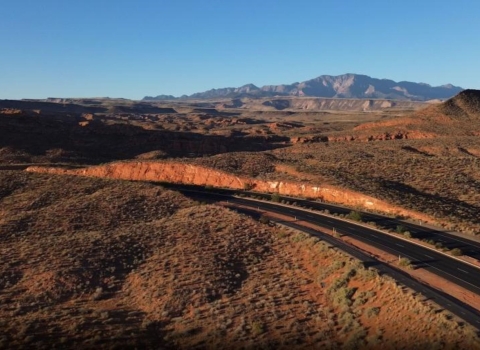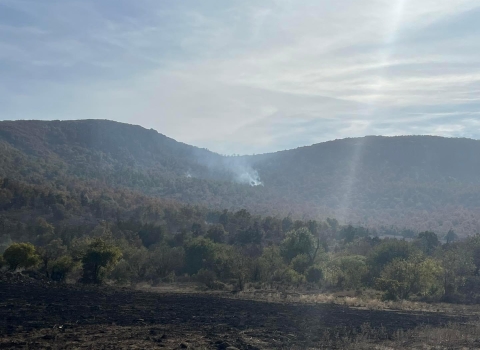Proposed for listing under the Endangered Species Act (ESA) in August 2020, the U.S. Fish and Wildlife Service is finalizing the listing of the marron bacora, a rare Virgin Islands plant, as an endangered species. With only seven remaining populations on the island of St. John in the United States Virgin Islands, marron bacora is currently in danger of extinction. Of those seven remaining populations, all but one occurs within the boundaries of the Virgin Islands National Park. A population discovered by staff from the Royal Botanic Gardens (Kew) and the National Park Trust of the Virgin Islands (NPTVI) in 2018 on the island of Tortola in the British Virgin Islands (BVI), extended the species’ range to that island. In addition to finalizing the listing of this plant, the Service is also finalizing its critical habitat.
“Species like marron bacora that are found in limited numbers on parts of only one or two Caribbean islands deserve special conservation attention,” said the Service’s Regional Director, Leopoldo Miranda-Castro. “Fortunately, we have many wonderful partnerships throughout the Caribbean, working hard to preserve and protect their natural heritage. Finalizing marron bacora’s listing and critical habitat will be a major step towards its eventual recovery.”
An intra-governmental agreement between the Service and the National Park Service is in place that allows for the propagation and augmentation of the population of marron bacora in the Brown Bay area within the Virgin Islands National Park (VINP). In addition, there are agreements with Island Conservation and the Friends of Virgin Islands National Park, two non-governmental organizations, for propagation of marron bacora and establishment of self-sustaining populations of the species within the protected lands of the VINP. The Service is also working with Kew to extend conservation efforts to Tortola and to conduct research on the species’ genetics.
When a species is listed under the ESA, the Service is required, where possible, to identify areas essential to the conservation of that species, known as critical habitat. In proposing critical habitat, the Service carefully evaluated the life-history processes of marron bacora and ensured that areas proposed for critical habitat contain the physical or biological features to support its biological needs. Based on information received during the comment period when the species was proposed for listing in August 2020, there was an amendment to the proposed critical habitat designation to exclude 1.33 acres, changing the total critical habitat acreage from 2,549 to the current 2,548.
Establishing critical habitat will raise awareness of the needs of marron bacora and other imperiled species and focus the efforts of our conservation partners. It also alerts federal agencies that they are required to make special conservation efforts when they work, fund or permit activities in those areas. The designation will have no impact on private landowners taking actions on their land that do not require federal funding or permits.
The rule finalizing the marron bacora’s listing as an endangered species and designating critical habitat becomes effective on July 18, 2022. The rule, comments and materials the Service received, as well as supporting documentation used in preparing the rule, are available for public inspection in the docket on http://www.regulations.gov; search for Docket No. FWS–R4–ES–2019-0050. Persons who use a telecommunications device for the deaf (TDD) may call the Federal Relay Service at (800) 877–8339.
For more information on this listing, please visit our Frequently Asked Questions below:
https://www.fws.gov/story/2022-06/finalized-listing-and-critical-habita…;
For more information on marron bacora, please visit the Service’s website below:
https://www.fws.gov/species/marron-bacora-solanum-conocarpum

